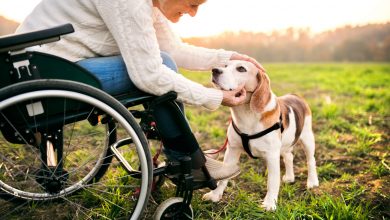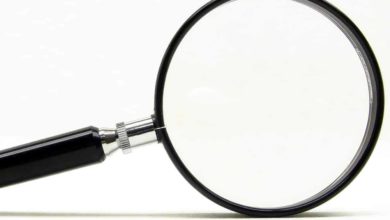Please read part 1 before reading part 2:
For some reason, people seem to think that grades during freshman year of college do not matter. Maybe this attitude at my school stemmed from the fact that for college admissions, University of California schools only consider grades from sophomore and junior year of high school. When I started at UCLA fall of 2008, I heard mixed advice about my first quarter. Various upperclassmen told me that I should not worry about academics too much during first quarter or even first year. Apparently, freshman year was more about “discovering yourself”. Other upperclassmen advised me that studying should be my number one priority. Well, being the ambitious freshman that I was, I tried to study hard while “discovering myself”. My two main goals in college were to get into medical school and grow as an individual. Why couldn’t I kill two birds with one stone? Well, it did not work as well as I hoped. My grades weren’t terrible but I got below a 3.5 my first quarter–not ideal for premed. However, I did grow a lot as a person as I met new people and joined a campus ministry. My subpar GPA humbled me and motivated me to study harder and smarter. I did think about dropping premed for a second but my stubbornness wouldn’t let me.
Concerning extracurricular activities, I got bad advice. Most people told me that I did not need to start right away. I was informed that I could wait until second year to volunteer, research, or work. I didn’t listen and I’m glad I didn’t. I applied to medical school after my fourth year, which means that I am taking a year off before starting school again. If I had waited until my second year to start my extracurricular activities, I definitely would not have been as strong of an applicant. I would have had to squeeze what I did in four years into three years. That would have been extremely difficult and my grades (and happiness) would have dropped. If you want to apply after your third year, which is the more traditional way, then you cannot afford to waste any time whatsoever.
So my advice is to look for volunteer work or research starting your first quarter/semester. That way, you can start your second quarter/semester. I think it is better to start with a light load of pre-med volunteering rather than work or research but it depends on your preference. During my first quarter, I applied to be a volunteer at the UCLA oncology clinic. I started volunteering my second quarter roughly seven hours a week. It was not what I expected. If you are a premed and your volunteering is extremely boring and unfulfilling, I hope my story is encouraging to you.
In the beginning, I just sat at the front desk. I didn’t even get to greet people. I started by shuttling paperwork to nurses and doctors. I thought that there would be a set program and training. There wasn’t. I thought there was going to be more interaction with doctors. But there was almost none. I realized very quickly that I was not going to be catered to. I needed to take the initiative. At first, I talked to the pre-med volunteer coordinator, who was not involved at all and therefore was not helpful. Then I proceeded to ask everyone who worked there how I could help. Most of the nurses requested that I help clean exam rooms, deliver blood specimen, and bring in patients. One of the workers asked me to help her pass out food to the cancer patients. This was my favorite part. I felt so privileged as I brought smiles to patients who were undergoing chemotherapy.
Every time I went to volunteer, I wondered what my purpose was there. I was a nobody at the clinic. I realized that they did not need me. It was humbling. It changed my perspective. Eventually I had to realize that it was an honor just to be a small part of the overall process of bringing healing to a patient. My role was probably the most minor but at least I was able to even play a role. Once I accepted and embraced that fact, I was able to enjoy my volunteer experience more. Every little thing I did, at least to me, had some sort of meaning. I was serving the patients and doctors in indirect ways.
Later on, I started to build relationships with some of nurses. One of the nurses, whose name was Daisy, told me her life story during our free time. Listening to her story of how she became a nurse at UCLA after a life of heartache and poverty was touching and inspirational. It was then that I realized that medicine was much bigger than just doctors. Everyone plays a role and everyone has a story. I still had no face time with any doctors but I figured that would eventually come. My goal was simply to be a helpful volunteer that made everyone’s lives easier.
If I had not started pre-med volunteering during my first year, I would not have found out how much becoming a doctor meant to me. There were so many times when I dreaded volunteering. Even with the right perspective, understanding that there was meaning to everything I did, I was still restless. Nevertheless my dread was overcome with love (sorry this is cheesy). I figured, if I truly wanted to get to the point where I can help people as a doctor, I had to endure the hard, boring, and seemingly pointless parts of the path of getting there. It was the love of medicine that empowered me to endure the difficult parts of volunteering. It was the desire to help the patients no matter how small my role was that enabled me to see the bigger picture. I know that when I do become a doctor, I will not take it for granted because of my humble beginnings. I hope to become a doctor who is not only about to empathize with patients but also those he works with, all the way to the lowly volunteer.
So what is the main message of this story? Start your extracurricular activities early. Study hard right away because every grade counts. Endure hardship–in my case it was mediocre grades and an initial unfulfilling volunteer experience–because that will really test how much you care. Keep the right perspective in all that you do because everything is a learning experience. You will never be happy as a doctor (you probably won’t even make it there) if you don’t have a love for medicine. How badly do you want to be a doctor? Are you willing to put up with menial tasks for months or even years? Are you willing to be at the bottom of the totem pole? If you are not, then you don’t want it that badly. I would advise you to pick another career path because it isn’t worth it.
Also read about Virtual Clinical Shadowing for Pre-Clinical Medical Students
Continue to part 3.



